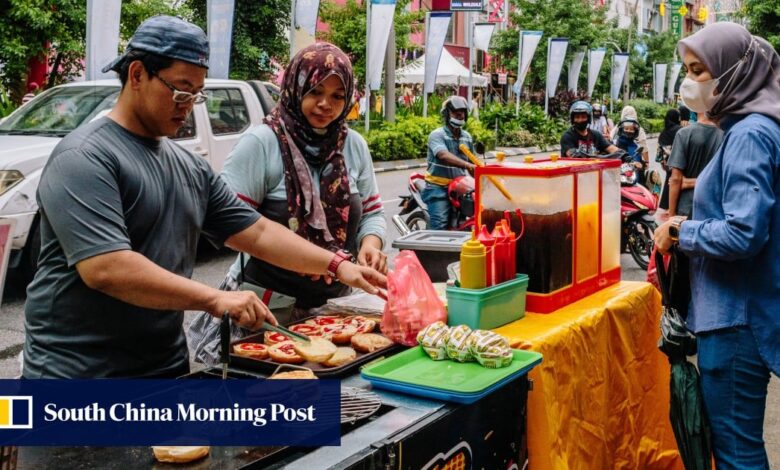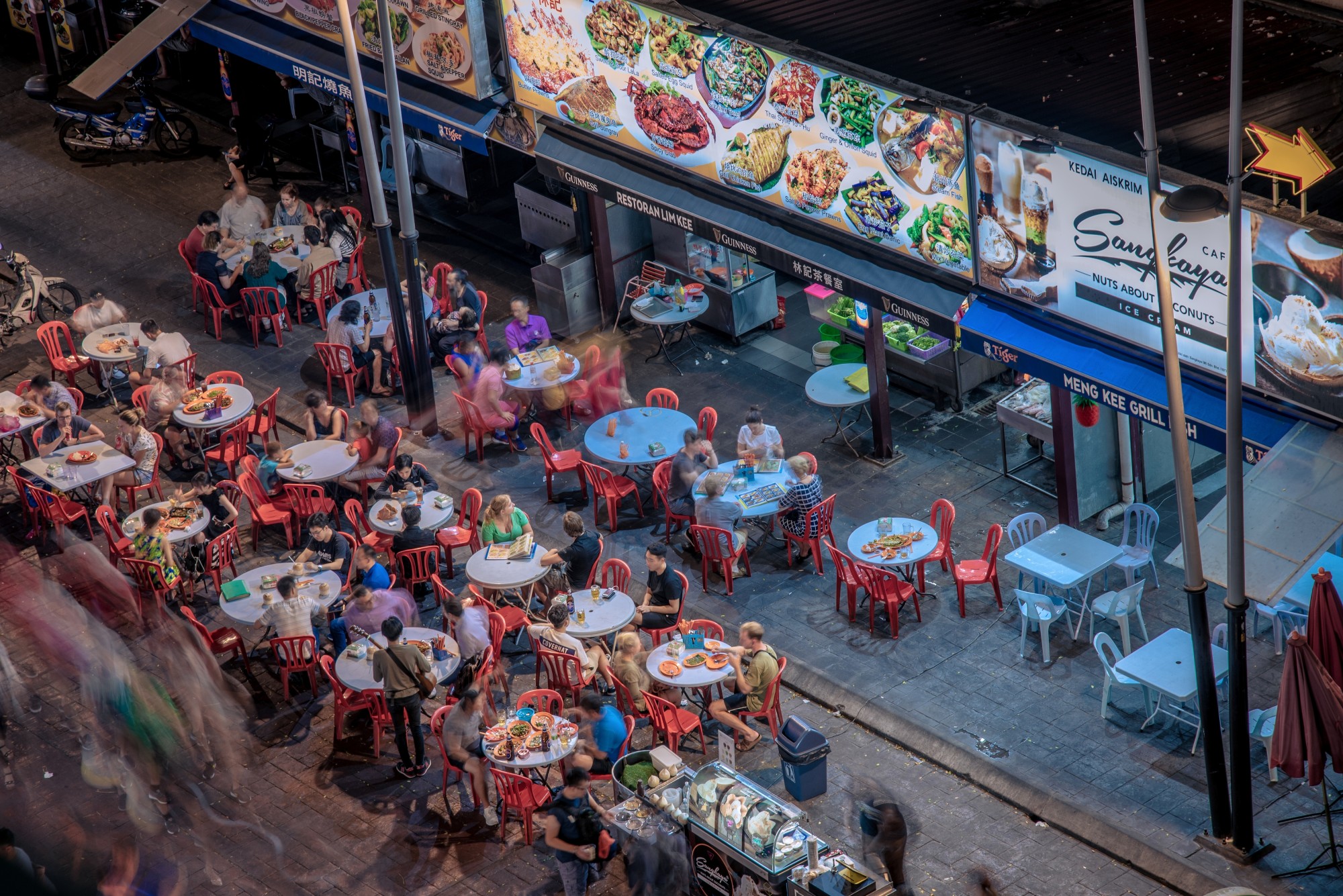Malaysians hit back after minister says nation ‘addicted’ to dining out, making people poorer

Time-harried Malaysians have hit back at a minister’s suggestion that the country is “addicted” to dining out and chewing up its own money, defending a 24-hour outdoor food culture spawned to cater for factory workers and arguing for more free public spaces to socialise.
The furore was sparked by Economy Minister Rafizi Ramli, who said on September 17 that his compatriots’ habit of regularly dining out was the reason they were feeling the pinch, urging them to cook at home to save money.
“We can see that the income used for eating out, whether it’s takeaway or eating at a restaurant or stall … has grown over the years. This is not about me making up stories, but this is based on the data,” he was reported as saying by local newspaper Sinar Harian.
His comments, backed by government data on household expenditure surveys, have sparked a backlash from a country that’s proud of its food and where shared meals out form the bedrock of diet and culture.
“Time is a trade-off between the full costs of eating in and eating out,” Christopher Choong, deputy director of research at Malaysia’s Khazanah Research Institute said on X, formerly known as Twitter.
He pointed out that the minister had overlooked the cost of domestic labour and household production in his calculus that a nation eating at home saves money. “You need time for planning, groceries, cleaning, plus mental labour to do so, and opportunity costs of unpaid hours,” he said.
Malaysia to spend billions to reduce poverty, boost growth in 5-year plan
Malaysia to spend billions to reduce poverty, boost growth in 5-year plan
In a study on the topic of eating out in 2020, Choong and fellow researcher Goh Ming Jun said “time poverty” affected 61.5 per cent of Malaysian women and 48 per cent of men, especially in low-income households in the Kuala Lumpur metropolitan area.
The rise of 24-hour Indian-Muslim – or mamak – eateries around the country in the early 1990s correlated to the rapid industrialisation of Malaysia.
Initially, they catered to factory workers working late night and early morning shifts, before expanding to cater to supporters of European football leagues who stay up late to watch games that are often projected on big screens at such establishments.

“This has become a strong element of our street food culture. I think we should protect that instead,” said ride-sharing driver Edwin Lee in Kuala Lumpur.
He said driving tourists around the capital revealed that many visitors were intrigued by Malaysia’s food culture and see it as a net benefit to the country’s tourism offering and economy in the long run. “So yes, I find the minister’s point of view a little shortsighted,” he said.
City dwellers in Malaysia’s peninsular west coast eat out with greater frequency than those in rural areas, where the slower pace of life still allows for office workers to return home for lunch before going back to work.
Nabil Ersyad, a cities and urban transport activist, said that eating out was a valuable part of Malaysian culture but people often did so because of a lack of other public spaces to meet.
“There are few places to go, hang out and meet people besides going to restaurants and malls,” Nabil said. “Free places like parks, libraries and plazas are either absent, limited or restricted.”
‘Live with heatwaves’: why Singapore and other Asian nations must adapt
‘Live with heatwaves’: why Singapore and other Asian nations must adapt
The fact that daytime temperatures regularly exceed 30 degrees Celsius (86 degrees Fahrenheit) – with nights almost as warm – also plays into why Malaysians seek refuge in air-conditioned shopping centres and restaurants.
Workers, meanwhile, spend a lot of time commuting from work to home, leading to mamak restaurants and late-night food courts being the default gathering places for most urban Malaysians.
A 2022 study by digital mapping company TomTom found that Malaysians spend 159 hours stuck in traffic each year, ahead of Singapore and Hong Kong at 150 and 141 hours, respectively.
“By the time I get home, I just want to sit and rest,” said accountant Asrul Ramli.
Like many, he lives outside Kuala Lumpur for the lower rents and drives to and from work as the public transport in his neighbourhood is impractical.
“People say it’s cheaper to cook at home, but it’s actually expensive to cook for one,” said Asrul, who is single.
Malaysians appalled their food ranks 39th in ‘50 best world cuisines’ list
Malaysians appalled their food ranks 39th in ‘50 best world cuisines’ list
While being panned for his comments, Minister Rafizi attributed the issue to an “unintended consequence of policies of the past”.
He said these included divesting from agriculture in lieu of importing raw materials and a lack of investment in public transport that had led many Malaysians to resort to eating out and food deliveries, having lost hours commuting on the road.
Meanwhile, former health minister-turned-podcaster Khairy Jamaluddin told the economics minister to stick to solutions instead of walking the public through his thoughts.
“If you don’t have a decision, don’t expose your thinking process,” he said in his podcast Keluar Sekejap, citing his own experience as health minister in the midst of the Covid-19 pandemic. “The public doesn’t want to know that, they want to know your decision.”





